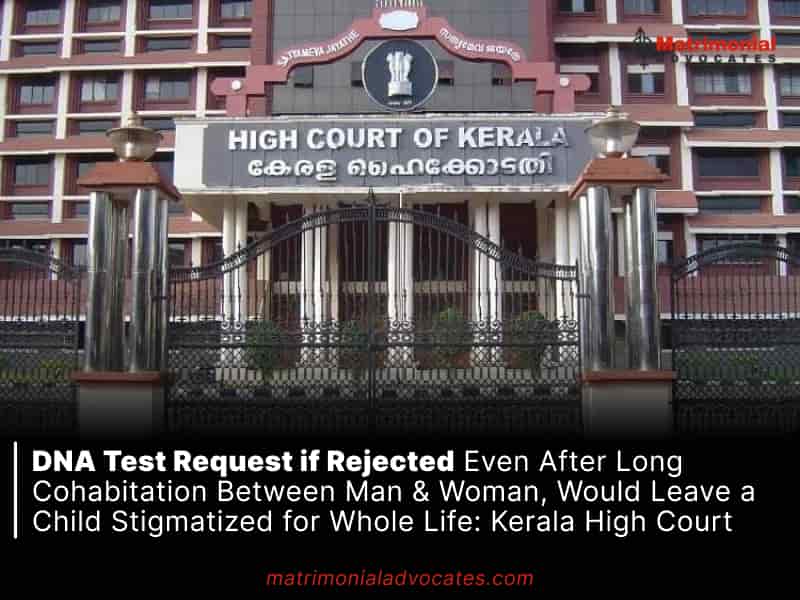
The Kerala High Court recently held that when there is prima facie evidence of long cohabitation between a man and woman, the plea for a DNA test of the man to determine the paternity of a child who is born out of the relationship cannot be rejected. Rejection of such cases, not only cast a social stigma upon the mother but also the child for the whole life.
The observation was made by Justice Mary Joseph while rejecting the plea of a man who challenged a family court order directing him to undergo a blood test for DNA verification to confirm if the child belongs to him.
The Court also noted that the woman who claimed to live with the man as his wife had made out a prima facie case that the two had cohabited. When it comes to the petitioner’s side, he was found to be not successful in establishing a prima facie case to support his claim that the woman led an immoral life.
Hence, the Court opined that it could not put aside the woman’s request for a DNA test to cross-determine the paternity of her child.
In the matter, the Court said, “If an order of this nature is declined that would have the impact of bastarding the minor girl child among the public. Undoubtedly that would caste a social stigma upon the child as well as the mother respectively as ‘bastard’ and ‘immoral’.”
Referring to the claims of maintenance sought by the woman for herself and the child, the Court said, “True that an illegitimate child is also eligible for maintenance allowance but, for that paternity is a very relevant aspect to be established to enable the court to direct payment from the respondent who was alleged as his father.”
The petitioner (man) and the woman were stated to have fallen in love followed by a relationship and then a long cohabitation. The woman also claimed that they had also lived together as husband and wife.
During the period, the woman got pregnant and the petitioner is stated to have sent her back to her home in Mumbai where she could get better care. Further, the man is also alleged to have promised her over the phone to marry her.
The woman further claimed that the man also used to send her money to manage her expenses and treatment as well. And he also insisted her to come to Kollam for her delivery so that he could also support her during her hospitalization period.
However, when she came later to Kollam, she got the news that the man had got married already, the Court was told.
When she confronted him over the phone, the man promised her that he would look after her as well as the child. Moreover, he also threatened her against disclosing their relationship to anyone.
The petitioner also agreed to buy a flat in the woman’s name and also to take an insurance policy in the name of their child for her better education and marriage. But he failed to keep his promise and therefore the woman demanded compliance. Thereafter, in 2013, the petitioner stopped the money he was sending for her as well as her child’s maintenance.
Then, the woman filed a complaint before the Kerala Women’s Commission which ordered the respondent to undergo a blood test for his DNA examination. However, it couldn’t materialize due to the non-cooperation of the petitioner.
Then after, the woman approached the Family Court in Ernakulam, the petitioner not only denied paternity, and marital relationship but also cohabitation with the woman. Due to this, the family court directed the petitioner to take a blood test for DNA verification.
It enabled the petitioner to approach the High Court. The petitioner contended that the woman was leading a loose life and was trying to humiliate him so as to extort money.
After analyzing all evidence and precedents, the Court said that there was prima facie evidence of long cohabitation between the petitioner and the woman.
So, the Court held that the order for a DNA test of the petitioner to determine the paternity of the child can’t be ignored.
Therefore, the Court dismissed the petitioner and upheld the family court order.
Source: https://www.barandbench.com/news/child-will-be-stigmatised-branded-bastard-dna-test-not-allowed-proof-cohabitation-kerala-high-court





